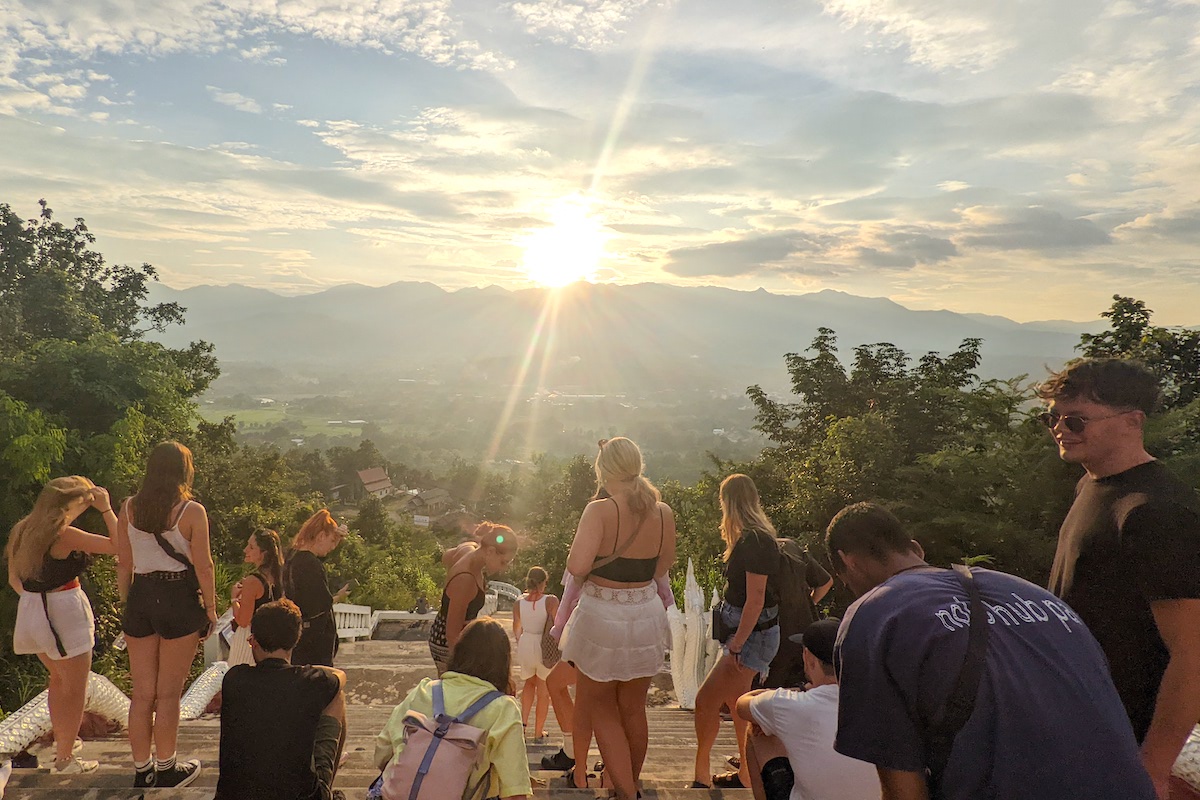
I’m a Digital Nomad: Here are the Highs and Lows of Seeking Friends with This Lifestyle
Skip to Section
Travelling the globe is an adventure I will never regret but when you’re taking it on solo, an unwelcome passenger sometimes makes an appearance: loneliness.
While I constantly meet new people travelling full-time as a digital nomad, it is no easy feat to make and keep friends on the road.
I have been lucky enough to meet people that I see staying in my life forever, encountered plenty that left little to no mark and felt incredible joy surrounded by utter strangers who would soon become friends.
However, moments of intense loneliness creep in and when they do, I long for my community of friends back home. The ones who know me inside and out, who never communicate with small talk or need to meet “the best version of myself” to enjoy my company.
Switching between travelling regularly, staying in hostels and sightseeing to remaining stationary and living solo, I am constantly saying hello and goodbye. Friends are usually in your life for days or weeks instead of years and it can take time to make meaningful connections.
Initially, I began my life on the road with a travelling partner in crime—my ex-boyfriend—and befriending people was a lower priority. Plus, we were staying in private rooms in hotels or Airbnbs 100% of the time so opportunities for meeting people were few and far between.
Then, when we broke up, I faced a life on the road entirely alone. I felt an immediate combination of terror and excitement rising up inside me. Could I be brave enough to approach strangers to befriend them? Was I capable of staying in hostel dorm rooms? Would I be facing a lifetime of being alone on the road?
The idea of having to make new connections in every location felt daunting and a little overwhelming but my first solo adventure showed me that my fears were largely unfounded.
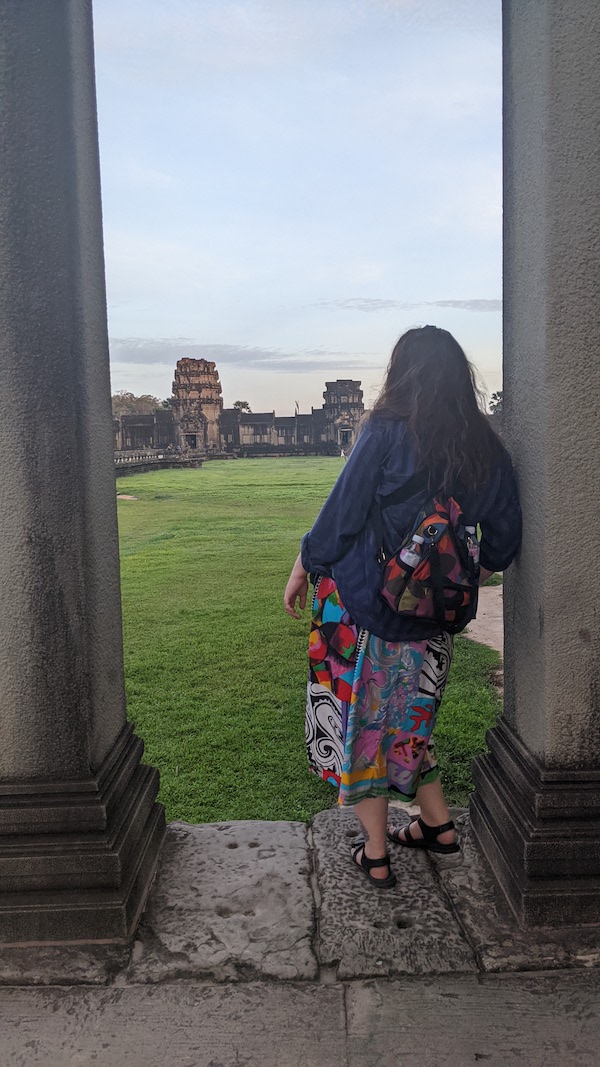
The first stop on my solo adventure was the capital of Cambodia, Phnom Penh. After settling into the city for a few days in a hotel to ease into solo life, I moved to my very first hostel.
Still wary of dorms, I checked into a private room, threw my bags down and headed downstairs to the bar before my nerves could trip me up. With a drink in hand, I scanned the room, found the only other person sitting by themselves and walked up to ask a simple question: “Would you like a friend?”
Luckily, he said yes. We had an instant connection and chatted for hours, covering everything from the politics in our respective countries to sex positions.
The rest of the night was a blur of faces as I joined the hostel’s drinking games and woke up with one of the worst hangovers of my life. But it was worth every aching second of the two-day punishment because now I knew how to walk up to a table of strangers and walk away with friendships.
Following that first night, introducing myself to people became less daunting. I spent the rest of my time in Phnom Penh with a lovely group, many of whom I am still in contact with, exploring every corner of the city.
Although I now switch in and out of dorm rooms to save money and meet people, it is undeniably harder to meet people when staying in private rooms or in accommodations outside of hostels.
If you are unwilling or unable to stay in dorm rooms or hostels, there are countless methods to conquer this barrier to meeting people. Remaining open to connection is crucial. No one is going to strike up a conversation with someone who wears headphones all day, or with anyone who looks closed off.
Just control your resting bitch face and you will meet people all over the place. There are countless solo travellers on the road who are all in the same boat and most of the time, they will receive a friendly “hello” with open arms. You never know when you’re going to make a new friend.
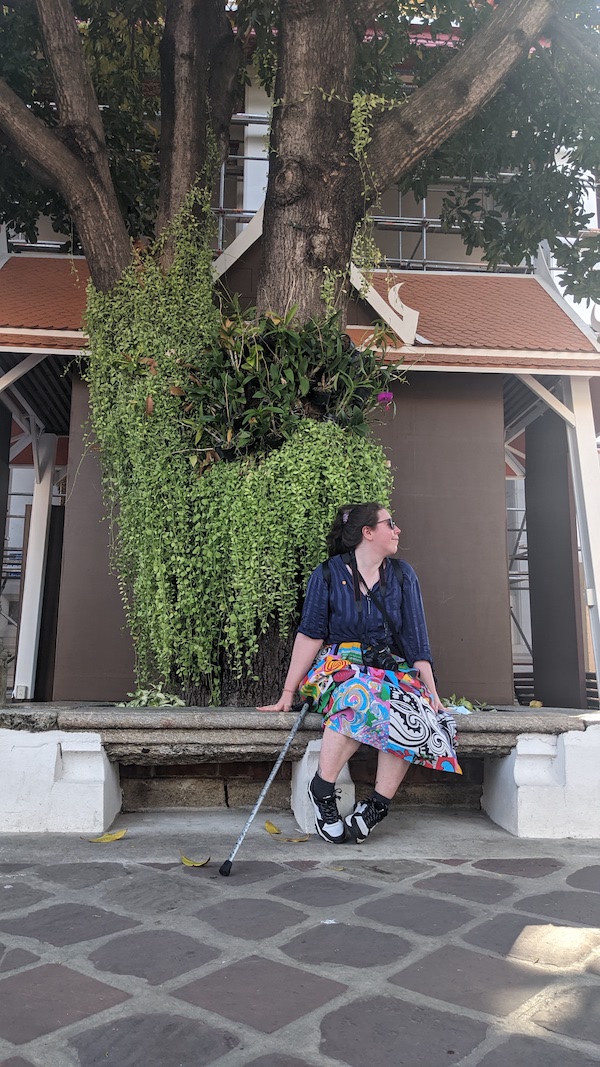
Visiting temples in Bangkok with my cane
You will also meet many different types of friends and travellers. The community is forever changing because people are always migrating: going home, leaving home or finding a new one. Staying open to making new connections is a must for survival.
There is also a divide between people who are travelling short-term—for months or weeks—and those who are living a full-time travel lifestyle as digital nomads. Many of the people you meet in hostels will be travelling full-time and not working, so it’s hard to maintain connections because they are often moving faster than I am.
But it’s not impossible by any means. I have met friends in airports, cafes, waterfalls, mountain tops, hotel lobbies, bars, and numerous other locations. If you’re struggling, I recommend going on tours, trying out Bumble friends, or even using dating apps to meet new people.
For me, one of the most important lessons came when I realised the importance of befriending people in a non-clingy way. It is far harder to meet new people if you do not have a firm grasp of who you are and are latching on to the first person who responds to your approach. Being confident in my personality, ability to engage people and sense of humour makes chatting with new people much easier.
Travelling solo pushes you so far outside of your comfort zone that there is little room for self-consciousness; however, it also has the potential to expose your vulnerabilities. I occasionally struggle with social anxiety and replay conversations with people I meet for days afterwards, or worry over whether I am interesting enough to other people.
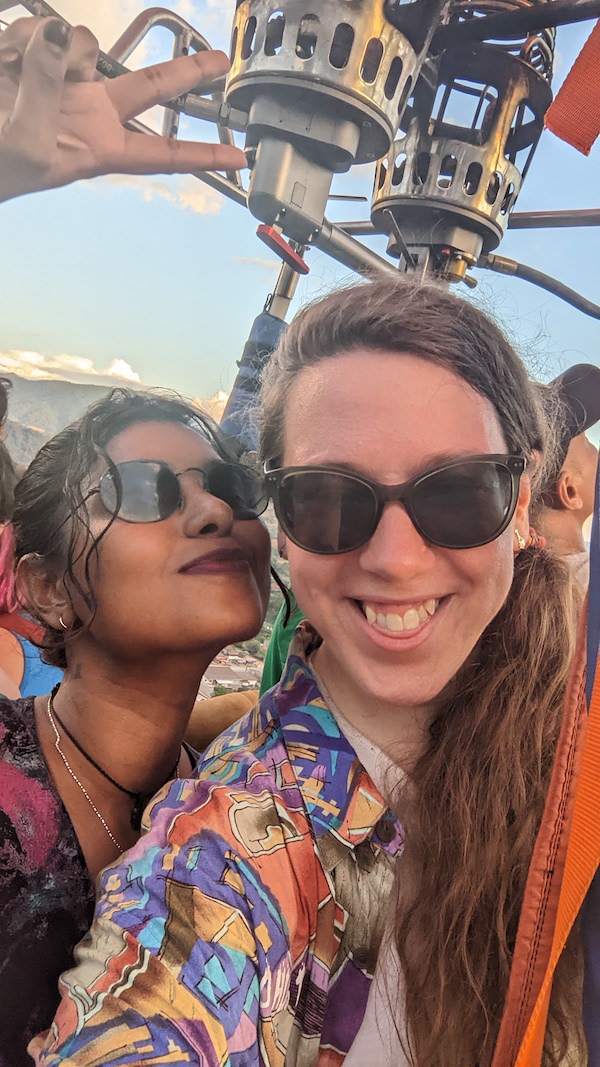
But, to put it simply, this is irrelevant. Not everyone you meet will like you and vice versa. Most people will barely remember you and the ones that you do form a connection with, will likely only remember the best parts of your experiences together—not the times you were grumpy.
Anyway, you do not need to make new friends at every stop you make. Most of the time, you’ll find yourself travelling alongside friends from your last location or you’ll be in need of some solo time to recentre yourself. Don’t forget travelling full-time and befriending people constantly depletes your social battery quickly.
Plus, it’s important to learn when to stop trying to force a connection with people. You will not bond with everyone you meet and sometimes, you just won’t gel with each other. It’s okay to go your own way and start a separate adventure.
As it’s easy to get funnelled into following each other around, actually doing this can be awkward but you have two options: speak up and say you want some solo time or find a convenient moment to slip away when the group diverges.
However, it’s important to learn how to recognise when you’re genuinely connecting with people and when the conversation needs to evolve. On the road, there are three questions everyone asks after learning your name: “Where are you from?” “Where have you travelled?” and “How long have you been travelling for?”
While it’s fun hearing about other people’s adventures, and getting their recommendations is important, get outside of this conversation prison as quickly as possible. Ask about people’s life experiences outside of travel, be open to diving into weird topics and challenge each other with interesting questions.
While all of this is easy to type out, living this life, in reality, is a totally different experience. Even when you’re surrounded by people, you can still feel desperately lonely. People are always leaving and friendship groups never look the same from week to week, let alone month to month.
Despite this, the fulfilment of meeting people from all over the globe is unmatched. The people you encounter will challenge your worldview and encourage you to see the world from a new perspective, and they will be by your side while living core memories.
When looking back on travel experiences, you will always remember the things you did but in equal measure, you’ll treasure the memories of the people who shared those experiences with you.
And, as an added benefit, you’ll start racking up friends all over the globe who you can visit and keep expanding your horizons with. The goodbyes may be heartwrenching but every new hello is like opening a window into a new world.
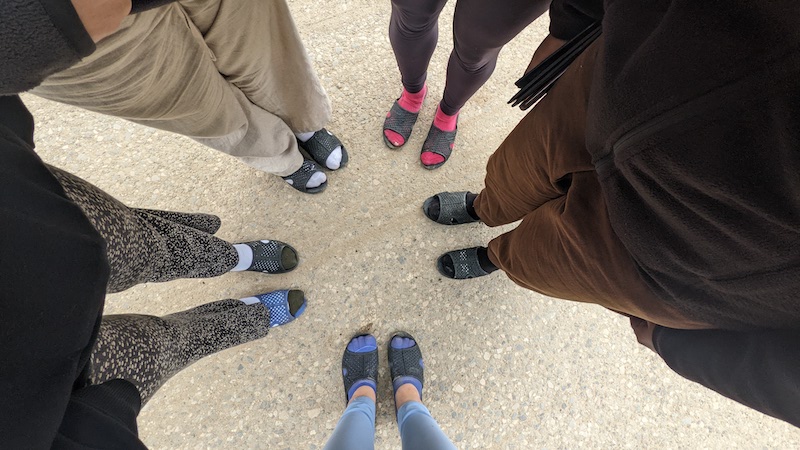
About the Author
Hannah Shewan Stevens is a writer, editor and campaigner. As a disabled, chronically ill queer woman, she specialises in covering the intersection of health, travel, sexuality and LGBTQ+ issues. She is also training to be a sex educator and hopes to use her work to help people confront difficult topics openly and with compassion.
All photos courtesy of the author.
Information published on this website and across our networks can change over time. Stories and recommendations reflect the subjective opinions of our writers. You should consult multiple sources to ensure you have the most current, safe, and correct details for your own research and plans.
Frayed Passport is a participant in the Amazon Associates Program, an affiliate advertising program designed to provide a means for sites to earn advertising fees by advertising and linking to Amazon.com. We also may share links to other affiliates and sponsors in articles across our website.




